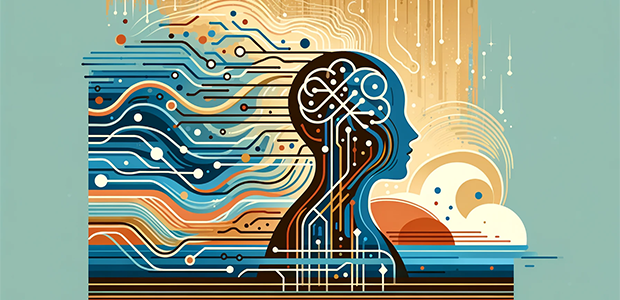
The Synergy of AI and Human Intelligence: Transforming Sales in the Digital Age
In the dynamic landscape of sales, where customer expectations are ever-evolving, Artificial Intelligence (AI) is a game-changer, revolutionising the way businesses approach sales processes.
From lead generation to customer relationship management, AI-based tools are proving to be invaluable assets, reshaping the sales industry, and enabling organisations to achieve unprecedented levels of efficiency and effectiveness.
My own journey into understanding AI is provoked both by professional curiosity and a tinge of excitement/fear, my business offers training, coaching, and consulting services to organisations to improve their sales performance. This means I spend a lot of time in workshops (either physically or virtually) supporting the development of salespeople. I need to keep up to date with the latest innovations in sales to remain relevant to my clients and understand how AI is disrupting the traditional sales role. The tinge of excitement/fear comes from its impact on the training industry. For the purposes of this article I will focus on the impact on the sales role.
One of the key areas where AI is making a significant impact is in lead generation. Traditional methods often involve extensive manual efforts to identify and qualify leads, a process that can be time-consuming. AI-powered tools, on the other hand, leverage machine learning algorithms to analyse vast amounts of data and identify patterns. This results in more accurate lead scoring, enabling sales teams to prioritise their efforts on leads with the highest potential, ultimately leading to increased conversion rates. In this space there is an abundance of options including technology that generates unique personalised emails and tailored outreach sequences from scratch. The AI can even respond to prospects’ emails by answering questions and booking meetings on your behalf. Many of them also provide suggestions for messaging and content to help salespeople get the most out of their outreach campaigns.
AI's impact is not limited to the initial stages of the sales process; it extends into customer relationship management (CRM) as well. AI-driven CRM platforms analyse customer data to identify trends, preferences, and potential opportunities. This enables sales teams to tailor their approach, offering personalised solutions and fostering stronger connections with clients.
One of the standout features of AI in sales is its ability to automate time-consuming tasks. Sales representatives can now offload repetitive and creative activities, such as report generation, proposal writing, tender responses and pitch slide decks to AI-based tools. As a result, sales teams can focus on strategic activities that require human intelligence, such as building relationships, understanding client needs, and developing innovative sales strategies.
My own exploration of the creative capabilities of AI have so far only scratched the surface. In the last few weeks I have used Chat GPT to help write the copy for my new website, I have created a promotional video for one of our services using an AI cloned version of my voice for the voiceover. Which sounded like me, only somehow better (No wonder Actors are worried). I have also used it to help write social media articles and (full disclosure) this article as well. My non-scientific estimate is that AI sped up the process in all these activities by a minimum factor of 10.
However, it's essential to recognise that the true power lies in the combination of AI and human intelligence. While AI can analyse vast datasets and identify patterns, it lacks the emotional understanding and intuition that humans possess. Successful sales strategies require a delicate balance between the efficiency of AI and the emotional intelligence of humans.
In conclusion, the impact of AI on sales is undeniable, with tools like lead generation algorithms, chatbots, and predictive analytics revolutionising the industry. However, the true potential is realised when AI collaborates with human intelligence. By combining the strengths of both, organisations can create a sales ecosystem that is not only efficient but also empathetic and responsive to the ever-changing needs of customers. As businesses continue to embrace the transformative capabilities of AI, the future of sales lies in the delicate harmony between artificial and human intelligence.

